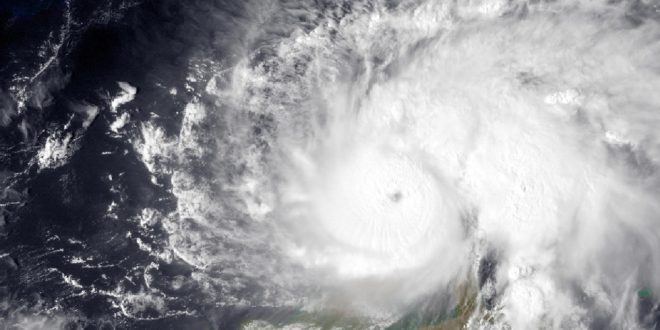
Since we just experienced a hurricane that left a lasting impression on the area with significant damage and economic impact, it may seem strange to devote a column to the beneficial effects of hurricanes.
But it is important to keep things in perspective. We need to remember that virtually all the damage done was to structures that we have built.
Hurricanes do, in fact, have very positive impacts on the overall ecology of the world.
- They are rain makers! Lots and lots of water is evaporated from the ocean by the hot summer sun, and then the hurricanes return that water to the earth in torrents. The sheer quantity of that water flushes our rivers, replenishes our lakes, recharges our aquifer and saturates our land for the coming fall and winter.
- Typically the drop in salinity caused by the hurricane rain is an indicator to our river shrimp that it is time to migrate offshore and reproduce.
- Hurricanes are an important factor in maintaining heat balance in the world. They are fueled by warm water that has been heated by the summer sun. The energy expended by the hurricane changes from heat energy to wind energy, and it is dissipated in the process. Did you ever notice how cool it is after a storm?
- Another beneficial impact has to do with sand movement. Now, many of you may argue with me on this point, but that sand movement, again, is only a problem because we have built structures along the beach. The natural process of beach ecology is for the sand to be built up in the dunes. The dunes offer protection of the land behind the dunes, but they also serve as a source of sand when wave action is eroding the beach. Beaches are sort of a river of sand, constantly moving and changing. But our barrier islands are slowly migrating westward. They do this by gradually shifting sand from the beach face to the back shore. Wind, waves and wash-over fans, which destroy our roads and property, are a natural part of this process.
- Hurricanes are essentially giant mixers and stir the ocean in the process. This mixing of deep, nutrient-rich water replenishes the surface waters and encourages increased productivity at the surface. This process is recycling nutrients that otherwise would be trapped in the bottom water.
- One of the major damages we see has to do with trees being blown over and the apparent mass destruction of property. But, once again, it is only a problem when we have structures built near the trees. Trees have a life cycle like most living things. As the tree matures and eventually dies, the hurricane is a mechanism to push the tree over, allowing space for younger plants to grow and take their place in the sun. The older tree, now dead and decaying, will return nutrients to the soil to nourish new life.
So it goes, that with all the bad we associate with hurricanes, there is also much good. But it can be hard to accept when your power is off, the ice cream is melting and you have a tree down across your driveway and car.
Ask River Life
We heard a great deal about storm surge during Hurricane Matthew. It didn’t seem too bad in Jacksonville, but I understand it was worse south of us. Why?
Jacksonville was very fortunate that Matthew passed as far east of us as it did. Storm surge is the water height on top of the normal tidal height, which is a function of wind direction, wind speed and the duration of the wind. The St. Johns River is deeper and wider toward the northern portion. Water moving into the river is compressed as it flows into the shallow, narrow southern portion. That compression makes the storm surge greater as you move south, but then it begins to diminish south of about Palatka.
River Life runs the last Friday of each month in The Florida Times-Union. E-mail A. Quinton White, executive director of Jacksonville University’s Marine Science Research Institute, with questions about our waterways at qwhite@ju.edu. For more on the MSRI, visit ju.edu/msri.
 Wave Magazine Online Jacksonville University News Hub
Wave Magazine Online Jacksonville University News Hub
